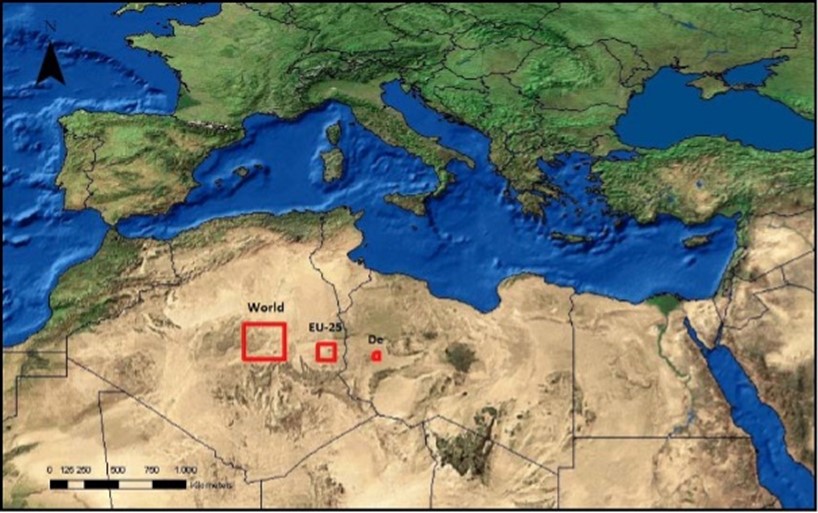Toon has a Master’s Degree in Civil Engineering (major in Energy) from the KU Leuven. He completed a 6 month internship as Derivates Analist. He work as a Junior Climate Consultant for Econopolis Climate and works on advisory projects related to climate & energy. Toon is also founder of Stroomloop, a unique trailrunning experience.
How exporting solar power can become a game changer for Africa
As we address the pressing challenge of climate change, the transition to clean energy has become a global priority. Renewable energy sources hold one of the key solutions to achieving a sustainable future, providing a vital solution. Currently, renewables account for only 5.2% of the world's energy supply. However, to avoid the harmful effects of rising temperatures, the International Energy Agency (IEA) emphasizes the need to increase this figure to 17.5% by 2030. In this context, Africa's role in achieving this target offers a glimmer of hope. By leveraging its abundant renewable resources, the continent can play a crucial part in the global transition, offering an affordable pathway towards our ambitious goals.
Africa possesses the greatest solar potential globally, with evidence from irradiance maps indicating that the continent holds a staggering 60% of the world's solar resources. However, despite this immense potential, Africa's solar generation capacity remains critically low at a mere 1% of global capacity, as reported by the IEA. This highlights a missed opportunity for significant capacity within the region. By addressing this gap, Africa can actively contribute to the global energy transition and position itself as a respected player on the international energy market, ultimately promoting sustainable development for its population.

Figure 1: Surface required to cover all the electricity demand for Germany, the EU and the entire
world with solar panels, assuming a 100% coverage of the area. Source: DLR, 2005
One of the key solutions lies in harnessing Africa's abundant solar potential to drive its own development. This can be achieved through focused investments in expanding access to solar-powered (micro)grids. By significantly improving the electrification landscape, Africa not only addresses a challenge, but also seizes a substantial investment opportunity. The International Renewable Energy Agency (IRENA) highlights that millions of energy-poor Africans, with incomes below USD 2.50 per day, represent a USD 10 billion annual energy market. Despite transaction complexities and other obstacles, the provision of clean and sustainable renewable power holds tremendous promise as a catalyst for exciting development opportunities.
In addition, Africa can capitalize on its affordable solar resources to extend its impact globally by exporting excess solar power. There are two potential, complementary approaches for exporting solar power: laying undersea cables, which could become too costly when distances become too large, or investing in facilities for hydrogen, methanol or ammonia production that utilize solar energy. These options allow to convert electricity into molecules, which are easier-to-transport energy carriers, and are therefore cheaper for long-distance transport. Moreover, strategically located regions in proximity to ports and liquefaction zones have the potential to become hubs of knowledge and industry. Several countries, such as Namibia, Egypt, Mauritania, and South Africa, have already initiated pilot projects focused on green hydrogen and ammonia. Namibia, for example, has established a national Green Hydrogen Council, appointed a dedicated green hydrogen commissioner, and ventured into various opportunities like blade manufacturing for wind turbines, green steel production facilities, and ammonia fertilizer manufacturing.
In conclusion, these initiatives demonstrate the transformative potential of renewable energy sources, particularly solar power, in driving economic diversification and technological advancement throughout Africa. The strategic integration of hydrogen holds the promise of creating a ripple effect, extending beyond energy production and positioning Africa as a major exporter of affordable solar energy. This can trigger a wave of positive economic change, propelling Africa into a leading role on the global stage. By rolling out renewable energy and hydrogen, Africa has the opportunity to shape a sustainable future while redefining its position in the international energy landscape.
